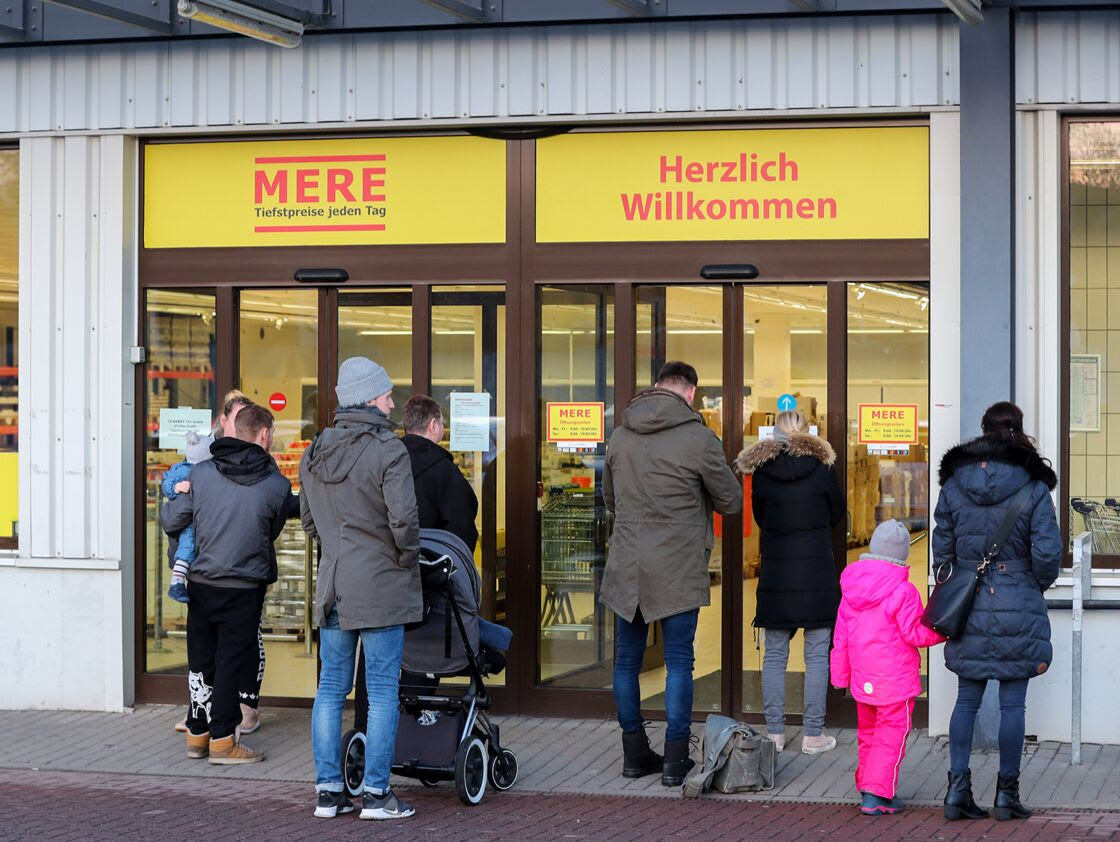Getty image/picture alliance
MERE, a Russian hard discounter whose parent company is the Siberian group Torgservis, opened its third store in Germany at the beginning of the Covid-19 crisis and hopes to develop its market share elsewhere in Europe thanks to the sustainability of the crisis.
This logic of development, based on the fall of the purchasing power associated with the increase of the poverty line and the fall of confidence of the population in its leaders, allowed MERE to increase its market shares in Russia, and Western Europe is the next territory of the conquest of the Russian distributors and of MERE in particular.
https://www.retaildetail.be/
In Russia, in the former republics of the USSR and in China, MERE is known under the brand Svetofor, founded in 2009 in Krasnoyarsk. The MERE brand was created in 2017 to conquer the European market and MERE is present since 2018 in Romania, Germany, Poland, Spain, Italy and Belgium. The next steps in its development are the United Kingdom and France from 2021.
The company’s principle is to offer food and non-food products at lower prices than the competition by limiting costs, notably by not having shelves and by offering items directly on pallets or in boxes on the floor, while reducing the number of sales staff to a minimum.
This search for low costs has a counterpart, that of the quality of the products because contrary to other discounters like Lidl or Aldi which seek a better quality of products, MERE wishes to guarantee only a low cost even if it means being less careful on the composition or the origin of the products.
https://actu.fr/economie/qui-
The reduction of the costs thus passes by the establishment in impoverished zones or in industrial wastelands in order to profit from low rent and by limiting their personnel to the cashiers. This strategy of establishment is the same as that developed by Aldi and Lidl at their beginning and works rather well because in the zones of Eastern Germany where MERE was established, the stores were out of stock the first week of their opening.
The low cost of the proposed products is partly explained by suppliers located mainly in Eastern Europe and in Russia where MERE buys the stocks of bankrupt companies or during destocking, but it can also propose big brands according to the available stocks.
These supply choices result in a limited number of products, a lack of follow-up of the proposed brands and an absence of fruits and vegetables other than frozen ones
https://www.lsa-conso.fr/
However, the arrival of MERE in France is not going as initially planned and the company will not be able to set up stores in 3 cities of the Grand Est region before 2022. The reason for this is the administrative procedures that have been delayed with the three municipalities concerned.
If in the case of Pont Sainte Marie, initial discussions have taken place, the town hall is still waiting for the complete file to continue the instruction, in the cases of Thionville and Sainte-Marguerite, no steps have been taken even if contacts have been made with the town hall of Thionville.
https://www.capital.fr/conso/
The niche proposed by MERE does not know any competition currently in France since it is no longer occupied by Lidl and Aldi in favour of positioning in a higher range level. However, this positioning remains fragile because it is based mainly on the level of poverty of the population, hence its establishment in areas undergoing economic conversion or with a low standard of living.
Also, the economic recovery and the improvement of the standard of living should slow down the growth of MERE because the consumers, with a purchasing power that increases, could be in search of products of better quality and forsake MERE for its competitors.
The solution for MERE would then be, either like its competitors, to go up in level of range, or to disengage from the zones with better purchasing power to be established in zones newly devastated where the consumers seek above all to preserve their purchasing power.



Comment here